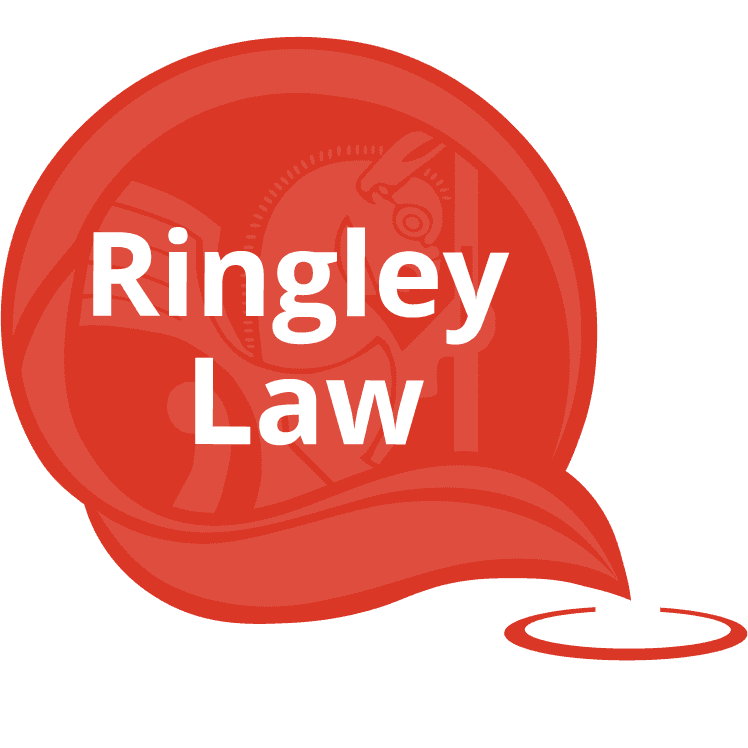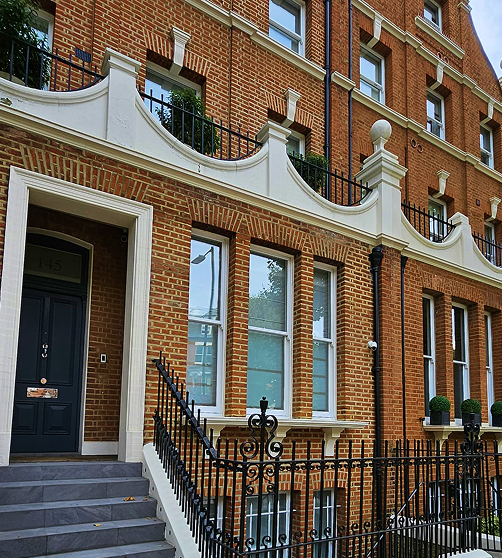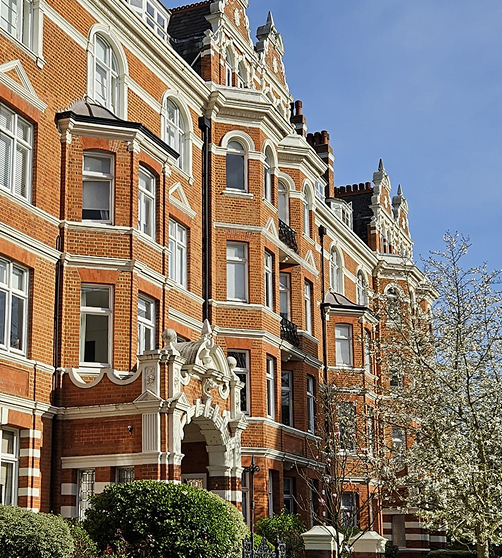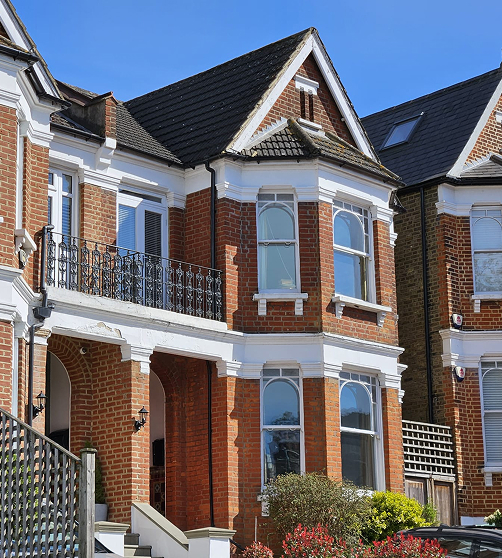Not being able to find the freeholder for your building will not stop you buying the freehold of your block.
Not being able to find the freeholder for your building will not stop you buying the freehold of your block.
Even if your freeholder is missing and has not collected ground rent for years, we can help you to get the Tribunal procedures to determine the premium and the Court to order the conveyance.
Absentee Freeholder
Please note that the House of Lords is currently reviewing the Government's draft Leasehold and Freehold Reform Bill which will (among other things) (i) remove the leaseholder liability for the freeholder's fees and (ii) amend the valuation method to make the premium cheaper for some leaseholders. It is anticipated that this will come into law later this year so it may make to wait for it to come into force. Please contact us if you have any questions
Step 1 - Looking for a freeholder
Step 2 - Application to Court
Step 3 - First Court Hearing
Step 4 - Tribunal
Step 5 - Tribunal transfers matter back to Court
Step 6 - Second Court Hearing
Step 7 - Execution of Legal Paperwork



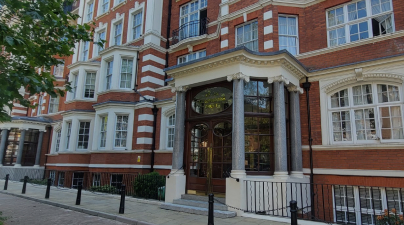
Can't find your freeholder? This needn't stop you extending your lease or buying the freehold. There is a bit more paperwork to do, but that's where we can help
What do Leaseholders do if they want to:
- extend their lease of their property;
- collectively buy the freehold title to their property; or
- apply for their right to manage
but cannot contact their Freeholder? The absence of the Freeholder should not prevent leaseholders from carrying out any of the actions listed above. The Leasehold Reform Housing & Urban Development Act 1993 (&for RTM it is 2002 Act) allows Leaseholders to overcome the problem of not being able to trace their Freeholder. The way to do it is via a "vesting order", which involves an application to the County Court. If the County Court is to grant a vesting order they must be satisfied that reasonable efforts to trace the landlord have been made. Evidence of such efforts could include:
- a land registry search of the Freeholder’s last known address to prove that he no longer owns this property and has moved on to address unknown,
- witness statements to confirm that a visit to the Freeholder’s last known address has not provided a forwarding address, or
- an absentee freeholder title indemnity policy that may have been taken as a condition of mortgage by any leaseholder who recently bought a flat in the block.
The particulars of claim will need to set out whether the hopeful leaseholder or leaseholders have served their notice of claim on the Freeholder’s last known address or served such notice in the London Gazette or a local paper or a request that the Court grants a dispensation from the requirement to serve notice. A case bundle will need to include up to date Land Registry title searches, copy leases, copy notices, witness statements, draft land registry transfer forms and other matters highlighted above.
The County Court may set a date for a hearing or the district judge may be satisfied that reasonable efforts to trace the Freeholder have been made and rule on the basis of the facts as presented to him, without need for a hearing. When your case is proved, the Court will issue a judgment setting out that the freehold may be acquired by the leaseholder(s) with funds to be 'vested' in the Court and deferring the case to the First Tier Tribunal (Property Chamber) (formerly known in England as the Leasehold Valuation Tribunal LVT) for determination of a 'reasonable' premium.
The First Tier Tribunal (Property Chamber) also deals with many absentee Freeholder cases without a full hearing by issuing directions for the hopeful leaseholders to comply with, and timescales for documents to be produced by. The documents the Tribunal will need include the order made by the County Court, copy leases, the valuation for the leaseholders, and proposed TP1 land transfer form. The Tribunal panel usually consists of a layperson, a lawyer and a valuer, all of whom make their determination from, not only the evidence put before them, but also their experience. There is therefore little point in putting a valuation before the panel that is not prepared in accordance with current case law and reflects market trends in respect of capitalisation rates and improvement rates.
A possible advantage of the Absentee Freeholder process for the Leaseholders is that the process can reduce the delay and expense involved in undertaking the whole right to manage lease extension or freehold purchase processes. The Leaseholders can save the cost of serving notices under these processes and will save the cost of negotiations with the Freeholder’s Surveyor because there is no-one to negotiate with as the First Tier Tribunal (Property Chamber) will determine the case.
Even if your freeholder is missing and has not collected ground rent for years, we can help you to get the Tribunal procedures to determine the premium and the Court to order the conveyance.
Absentee Freeholder
-
Step 1 - Looking for the freeholder
Due diligence including contacting freeholder usually including:
- advertising in the 'London Gazette' (circa £200 plus VAT)
- a trail of Land Registry searches to try to trace the Freeholder
- Companies House searches
- Obtaining copies of any 'title indemnity insurance' if required to take out when you got a mortgage
- Nominal costs for disbursements
-
Step 2 – Application to Court
To prepare and submit a County Court application for vesting order via the County Court. A vesting order is where the Court steps into the shoes of the missing freeholder.
-
Step 3 – First Court Hearing
Attendance at a Court hearing to explain papers.
-
Step 4 – Tribunal
Case gets transferred to the Tribunal who issue directions to comply with. Usually the applicant is responsible for preparing the bundle for the Tribunals assessment. The bundle will need to include the Expert's Valuation. Occasionally the Tribunal insists on an oral hearing rather than a paper hearing.
-
Step 5 – Tribunal transfers matter back to CourtThe Tribunal's determination will then be supplied to the Court together with a draft order which the Court will amend or grant. The effect of this order will be to order the sale of freehold/extension of lease at the premium determined by the FTT.
-
Step 6 – Second Court HearingThe Court will usually request a hearing to grant the Vesting Order.
-
Step 7 – Execution of Legal PaperworkExecuting draft transfer for freehold purchase or draft order for lease extensions. To pay the premium to buy the freehold or extend the lease into the Court along with Court costs and disbursements to deal with registration at HM Land Registry.
What do Leaseholders do if they want to:
- extend their lease of their property;
- collectively buy the freehold title to their property; or
- apply for their right to manage
but cannot contact their Freeholder? The absence of the Freeholder should not prevent leaseholders from carrying out any of the actions listed above. The Leasehold Reform Housing & Urban Development Act 1993 (&for RTM it is 2002 Act) allows Leaseholders to overcome the problem of not being able to trace their Freeholder. The way to do it is via a "vesting order", which involves an application to the County Court. If the County Court is to grant a vesting order they must be satisfied that reasonable efforts to trace the landlord have been made. Evidence of such efforts could include:
- a land registry search of the Freeholder’s last known address to prove that he no longer owns this property and has moved on to address unknown,
- witness statements to confirm that a visit to the Freeholder’s last known address has not provided a forwarding address, or
- an absentee freeholder title indemnity policy that may have been taken as a condition of mortgage by any leaseholder who recently bought a flat in the block.
The particulars of claim will need to set out whether the hopeful leaseholder or leaseholders have served their notice of claim on the Freeholder’s last known address or served such notice in the London Gazette or a local paper or a request that the Court grants a dispensation from the requirement to serve notice. A case bundle will need to include up to date Land Registry title searches, copy leases, copy notices, witness statements, draft land registry transfer forms and other matters highlighted above.
The County Court may set a date for a hearing or the district judge may be satisfied that reasonable efforts to trace the Freeholder have been made and rule on the basis of the facts as presented to him, without need for a hearing. When your case is proved, the Court will issue a judgment setting out that the freehold may be acquired by the leaseholder(s) with funds to be 'vested' in the Court and deferring the case to the First Tier Tribunal (Property Chamber) (formerly known in England as the Leasehold Valuation Tribunal LVT) for determination of a 'reasonable' premium.
The First Tier Tribunal (Property Chamber) also deals with many absentee Freeholder cases without a full hearing by issuing directions for the hopeful leaseholders to comply with, and timescales for documents to be produced by. The documents the Tribunal will need include the order made by the County Court, copy leases, the valuation for the leaseholders, and proposed TP1 land transfer form. The Tribunal panel usually consists of a layperson, a lawyer and a valuer, all of whom make their determination from, not only the evidence put before them, but also their experience. There is therefore little point in putting a valuation before the panel that is not prepared in accordance with current case law and reflects market trends in respect of capitalisation rates and improvement rates.
A possible advantage of the Absentee Freeholder process for the Leaseholders is that the process can reduce the delay and expense involved in undertaking the whole right to manage lease extension or freehold purchase processes. The Leaseholders can save the cost of serving notices under these processes and will save the cost of negotiations with the Freeholder’s Surveyor because there is no-one to negotiate with as the First Tier Tribunal (Property Chamber) will determine the case.
Can't find your freeholder? This needn't stop you extending your lease or buying the freehold. There is a bit more paperwork to do, but that's where we can help

Why not talk to one of our Solicitors today
0207 428 1977
Email Us
As Solicitors, Ringley Law handle and case manage a broad range of litigation matters at Court and Tribunal. For advocacy we have relationships with all the leading Barristers Chambers to best present your case.
Your Absentee Freeholder questions answered
-
What is an absent freeholder?
An absent freeholder refers to a situation where the legal owner or landlord of a property is not actively involved or available in the management or maintenance of the property. The absent freeholder may be physically absent, unresponsive to communication, or not actively engaged in fulfilling their responsibilities as a landlord.
This scenario can present challenges for leaseholders, as they may face difficulties in obtaining necessary permissions, addressing maintenance issues, or seeking resolution for disputes related to the property. The absence of a responsible freeholder can result in delays and complications when it comes to property management and decision-making.
In some cases, leaseholders may take steps to address the issue of an absent freeholder, such as applying for the Right to manage or exploring other legal options to assume greater control over the management of the property. Seeking legal advice is advisable for leaseholders dealing with an absent freeholder to understand their rights and potential courses of action within the applicable legal framework. -
Who is considered an absent freeholder?
An absent freeholder refers to the legal owner or landlord of a property who is not actively involved or available in the management or maintenance of the property. There is no specific definition of who is considered an absent freeholder, as it can vary depending on individual circumstances. However, some common scenarios where a freeholder may be considered absent include:
- Physical absence: The freeholder is physically unavailable or resides in a different location, making it challenging for them to fulfill their responsibilities or communicate with leaseholders.
- Lack of communication: The freeholder does not respond to communication attempts from leaseholders or fails to provide necessary permissions or information related to the property.
- Neglect of responsibilities: The freeholder neglects their obligations to maintain the property, address maintenance issues, or resolve disputes, resulting in a lack of active involvement in the property's management.
- Non-engagement: The freeholder does not participate in important decisions or meetings related to the property's management or fails to provide required services or resources to leaseholders.
It's important to note that the determination of an absent freeholder may be subjective and dependent on the specific circumstances of each case. In such situations, leaseholders may need to explore legal options or seek advice from professionals, such as solicitors or property management experts, to address the challenges posed by an absent freeholder.
-
What are the problems with absent freeholders?
The presence of an absent freeholder can lead to several problems and challenges for leaseholders and the management of the property. Some of the common problems associated with absent freeholders include:
- Lack of maintenance and repairs: An absent freeholder may neglect their responsibilities to maintain the property, resulting in delays or inadequate maintenance and repairs. This can lead to a deterioration of the property and affect the living conditions for leaseholders.
- Difficulty in obtaining permissions: Leaseholders may encounter difficulties in obtaining necessary permissions or consents from an absent freeholder. This can hinder leaseholders' ability to carry out alterations or necessary repairs to their individual properties.
- Limited decision-making: An absent freeholder may not actively participate in decision-making processes or engage with leaseholders regarding important matters related to the property. This can create delays, conflicts, and challenges in managing the property effectively.
- Lack of communication and support: Leaseholders may face difficulties in communicating with an absent freeholder, resulting in delays in addressing issues, resolving disputes, or obtaining necessary information. This lack of support and communication can impede the efficient management of the property.
- Disputes and conflicts: Absent freeholders may contribute to disputes and conflicts among leaseholders, particularly when it comes to shared responsibilities, service charges, or major decisions related to the property. The absence of a responsible and engaged freeholder can exacerbate disagreements and hinder their resolution.
- Inability to enforce rights: In the absence of an actively engaged freeholder, leaseholders may face challenges in enforcing their rights or holding the freeholder accountable for breaches of lease or other obligations.
Dealing with an absent freeholder can be complex and require legal assistance or engagement with property management professionals. Leaseholders may explore options such as the Right to Manage or collective enfranchisement to gain more control over the management of the property and address the problems associated with an absent freeholder. -
Can you sell a property with an absent freeholder?
Yes, it is possible to sell a property even if the freeholder is absent. However, the presence of an absent freeholder can introduce certain complexities and potential challenges during the sale process. Here are a few key considerations:
- Leaseholder consent: In most cases, the leaseholder will need to provide consent for the sale of the property. This consent may be required as per the terms of the lease agreement or as mandated by applicable laws or regulations.
- Obtaining necessary information: The absence of a freeholder can make it challenging to obtain essential information and documentation related to the property. It is important to gather as much information as possible regarding the lease terms, ground rent, service charges, and any outstanding obligations or disputes.
- Informing potential buyers: When marketing the property, it is important to disclose the situation of an absent freeholder to potential buyers. This can help manage expectations and provide transparency regarding any potential challenges associated with the absent freeholder.
- Addressing buyer concerns: Prospective buyers may have concerns or reservations about purchasing a property with an absent freeholder. It is advisable to address these concerns upfront and provide reassurances about the rights, obligations, and potential steps to manage the situation effectively.
Legal advice: Engaging a solicitor experienced in leasehold properties and property transactions is crucial. They can guide you through the process, help navigate any complexities related to an absent freeholder, and ensure that all necessary legal requirements are met during the sale.
While it is possible to sell a property with an absent freeholder, the process may require additional due diligence, communication, and legal support to mitigate potential challenges and ensure a smooth transaction.
-
How do you get a freehold from an absent landlord?
Obtaining the freehold from an absent landlord can be a complex process, but it is possible under certain circumstances. Here are some potential steps that can be taken:
- Investigate the lease: Review the terms of the lease agreement to determine if there are any provisions or clauses that address the potential acquisition of the freehold. Look for any rights or options granted to leaseholders to collectively purchase the freehold or exercise the Right to Manage.
- Right to Manage (RTM): The Right to Manage is a legal process that allows leaseholders to take over the management responsibilities of the property, even in the absence of the freeholder. Consult with a solicitor experienced in leasehold matters to determine if you and the other leaseholders are eligible to exercise the Right to Manage. If eligible, you can form a Right to Manage company and follow the statutory procedures to acquire the management rights.
- Enfranchisement: Enfranchisement refers to the process of leaseholders collectively purchasing the freehold of the property. This can be done under the Leasehold Reform, Housing and Urban Development Act 1993 in England and Wales, or under other applicable legislation in different regions. Seek legal advice to determine if you meet the qualifying criteria for enfranchisement and to guide you through the process.
- Absentee landlord procedures: In some cases, there may be specific legal procedures or remedies available to address the issue of an absent landlord. Local laws and regulations can provide guidance on how to proceed in such circumstances. Consult with a solicitor or property law specialist to understand the options available to you based on your jurisdiction.
- Compulsory purchase: In rare cases, if the landlord is completely untraceable or unresponsive, it may be possible to pursue a compulsory purchase of the freehold. This typically involves legal proceedings and can be a complex and lengthy process. Consult with legal professionals experienced in property law to assess the viability and potential steps for a compulsory purchase.
It is essential to seek legal advice from solicitors or property law specialists experienced in leasehold matters to guide you through the specific legal procedures and requirements applicable to your situation. They can provide tailored advice and assistance based on the relevant laws in your jurisdiction.
-
What is the absent landlord policy?
Absentee Landlord insurance provides coverage in situations where the landlord of a leasehold property cannot be located, is in liquidation or receivership, and as a result, rent has not been paid or demanded, and necessary consents for property-related work or lease assignments cannot be obtained.
Please note that when a development is planned that could violate a leasehold covenant, a separate Restrictive Covenant Indemnity may be required.
The insurance policy covers the following risks:
- Losses resulting from actions taken, including the exercise of rights of re-entry, due to rent or service charge arrears, failure to comply with conditions for lease assignments, or breaches of lease covenants related to property alterations.
- The coverage extends to the market value of the property in case the insured is dispossessed or evicted by a court order. It also includes damages, costs, and expenses recoverable by the landlord, as well as costs and expenses associated with seeking relief through court applications.
The specific terms and conditions of the Absentee Landlord insurance policy may vary depending on the provider and the jurisdiction. It is important to review the policy details and consult with an insurance professional to ensure a clear understanding of the coverage and its applicability to your specific circumstances.
-
Can you extend a lease with an absent freeholder?
Yes, it is possible to extend a lease even if the freeholder is absent. Leaseholders have the legal right to extend their lease under certain conditions, regardless of the freeholder's presence or involvement. Here are some key points to consider:
- Qualifying criteria: In order to qualify for a lease extension, you need to have owned the leasehold property for at least two years. This requirement is typically applicable in England and Wales, but it may vary in different jurisdictions.
- Statutory lease extension: Leaseholders have the right to request a statutory lease extension under the Leasehold Reform, Housing and Urban Development Act 1993 (in England and Wales). This allows leaseholders to extend their lease by an additional 90 years and reduce the ground rent to a peppercorn (nominal) amount.
- Formal notice: To initiate the lease extension process, you must serve a formal notice, known as a Section 42 Notice, on the absent freeholder or their representative. The notice outlines your intention to extend the lease and provides relevant details and proposed terms.
- Valuation and negotiation: Once the notice is served, the freeholder has a specified period to respond. A professional valuer may be appointed to determine the premium (the cost of the lease extension) based on various factors, including the property's value, remaining lease term, and other considerations. Negotiations may follow to agree on the premium and other terms.
- Legal process: If an agreement cannot be reached through negotiation, the leaseholder has the option to apply to the First-tier Tribunal (Property Chamber) to determine the premium and other terms of the lease extension.
It's important to note that the absence of the freeholder may complicate the lease extension process, particularly in terms of communication and obtaining necessary consents. However, there are legal procedures in place to enable leaseholders to extend their lease and protect their rights, even when the freeholder is absent. Seeking professional advice from a solicitor experienced in leasehold matters can help navigate the process and ensure compliance with legal requirements.
-
What is the indemnity policy for the lack of freeholder consent?
An indemnity policy for lack of freeholder consent, also known as a leasehold indemnity policy, is a type of insurance policy that provides financial protection to the leaseholder in situations where the freeholder's consent for certain actions or changes to the property cannot be obtained. This policy is commonly used in leasehold transactions or property-related matters where the absence of freeholder consent could potentially create legal or financial risks.
Here are some key points about indemnity policies for lack of freeholder consent:
- Purpose: The policy aims to protect the leaseholder from potential losses, damages, or legal expenses that may arise due to the absence of freeholder consent. It provides financial compensation or covers legal costs incurred in defending against any claims that may arise from the lack of consent.
- Covered actions: The policy typically covers specific actions or changes to the property that require the freeholder's consent, such as alterations or extensions to the property, subletting, change of use, or assignment of the lease.- Terms and conditions: The policy will outline the specific circumstances and limitations of coverage, including the scope of actions covered, policy exclusions, and any conditions or obligations that the leaseholder must adhere to.
- Premium and duration: The cost of the indemnity policy is typically a one-time premium paid by the leaseholder, which is based on the perceived risk associated with the lack of freeholder consent. The policy is usually valid for a specific duration, providing coverage during that period.
- Obtaining the policy: Leasehold indemnity policies are typically obtained through a solicitor or insurance provider specializing in property-related insurance. The policy is often purchased during the conveyancing process or when seeking consent for specific actions.
It's important to note that each indemnity policy is unique, and the specific terms, coverage, and exclusions can vary. It is recommended to consult with a qualified solicitor or insurance professional to assess your specific situation, determine the appropriate level of coverage required, and review the policy terms thoroughly before making a purchase -
Can I take my freeholder to court?
Yes, it is possible to take your freeholder to court under certain circumstances. As a leaseholder, you have legal rights and protections, and if you believe that your freeholder has breached their obligations or failed to fulfill their responsibilities, you may have grounds to initiate legal action. Here are some important points to consider:
- Breach of lease: If your freeholder has violated the terms and conditions outlined in the lease agreement, such as failing to carry out necessary repairs or maintenance, charging excessive service charges, or not providing required services, you may have a case for breach of lease.
- Dispute resolution: Before resorting to court proceedings, it is advisable to try to resolve the issue through alternative dispute resolution methods, such as mediation or arbitration. These processes aim to reach a mutually acceptable resolution without going to court.
- Statutory rights: Depending on your jurisdiction, there may be specific statutory rights and protections in place for leaseholders. These rights may include the right to challenge unreasonable service charges, request information about the management of the property, or collectively acquire the freehold through enfranchisement or the Right to manage.
- Legal advice: It is highly recommended to seek legal advice from a solicitor or lawyer who specializes in property and leasehold matters. They can assess the merits of your case, guide you through the legal process, and help you understand your rights and options.
- Court proceedings: If all attempts at negotiation or alternative dispute resolution fail, you may choose to pursue court proceedings. Depending on the nature and complexity of the case, you may need to file a claim in the appropriate court and present your evidence and arguments before a judge.
Taking your freeholder to court can be a complex and costly process, so it is important to carefully consider the potential outcomes and seek professional legal advice before proceeding. A solicitor can provide guidance specific to your situation and help you navigate the legal process effectively. -
How do you prove a freeholder is absent?
Proving the absence of a freeholder can be a challenging task, but there are several steps you can take to gather evidence and establish their absence. Here are some methods that can help in proving the absence of a freeholder:
- Review the lease documentation: Start by carefully examining the lease documentation for any contact information or details regarding the freeholder. This may include their name, address, or any designated representatives. Check if there are any provisions or clauses related to contact or communication with the freeholder.
- Contact the managing agent or previous owner: If there is a managing agent or property management company involved in the management of the property, reach out to them to inquire about the current status of the freeholder. They may have information regarding their whereabouts or contact details.
- Attempt communication: Make efforts to contact the freeholder directly using the provided contact information from the lease documentation. This can include sending letters or emails, making phone calls, or even visiting the registered address, if applicable. Keep a record of all communication attempts.
- Seek information from neighbours or residents: Talk to other residents or neighbours within the property to see if they have any knowledge or information about the freeholder's whereabouts. They may have had previous interactions or may be experiencing similar challenges.
- Conduct a search: Use public records and online resources to search for information about the freeholder. This can include property records, company registries, or other relevant databases. This search may provide information about the freeholder's address, contact details, or potential company affiliations.
- Hire a tracing agent: If all attempts to locate the freeholder prove unsuccessful, you may consider hiring a professional tracing agent who specializes in finding individuals. These agents have access to various databases and investigative techniques that can aid in locating the freeholder.
It's important to document all the steps you have taken to establish the absence of the freeholder, including copies of correspondence, records of communication attempts, and any evidence gathered. This documentation can be useful if you need to pursue legal avenues or seek assistance from relevant authorities or legal professionals. Consulting with a solicitor who specializes in leasehold matters can provide valuable guidance and help navigate the process effectively. -
Extending lease with absent freeholder
Extending a lease with an absent freeholder can be more challenging than when the freeholder is actively involved. However, leaseholders still have options to extend their lease even in the absence of the freeholder. Here are some considerations:
- Determine lease extension eligibility: Check if you meet the eligibility criteria for a lease extension in your jurisdiction. This usually includes being a leaseholder for a certain period, such as two years.
- Serve a Section 42 Notice: Serve a formal notice called a Section 42 Notice (or its equivalent in your jurisdiction) on the last known address of the absent freeholder. This notice expresses your intention to extend the lease and provides proposed terms and premiums. Keep records of the notice and proof of delivery.
- Appoint a nominee purchaser: In some cases, you may need to appoint a nominee purchaser to act on behalf of the leaseholders when the freeholder is absent or cannot be located. The nominee purchaser represents the leaseholders' interests during the lease extension process.
- Obtain professional valuation: In order to determine the premium for the lease extension, you will need to obtain a professional valuation of the property. This is typically carried out by a qualified surveyor or valuer who specializes in leasehold property.
- Apply to the First-tier Tribunal: If the absent freeholder does not respond or disputes the lease extension, you may need to apply to the First-tier Tribunal (Property Chamber) to determine the premium and terms of the lease extension. The tribunal will assess the evidence presented and make a legally binding decision.
- Obtain legal advice: It is advisable to seek legal advice from a solicitor experienced in leasehold matters. They can guide you through the process, ensure compliance with legal requirements, and provide assistance in case of disputes or complications.
While extending a lease with an absent freeholder can be more complex and time-consuming, it is still possible to achieve a lease extension. It is crucial to follow the appropriate legal procedures, document all correspondence and actions, and seek professional guidance to navigate the process effectively. -
What is the law when a freeholder doesn't reply to your notice?
When a freeholder doesn't reply to a notice, such as a lease extension notice or any other formal communication, the specific legal recourse will depend on the jurisdiction and the applicable laws. However, there are general steps that can be taken in such a situation:
- Check the legal requirements: Review the relevant legislation and regulations in your jurisdiction to understand the specific provisions regarding the freeholder's response to a notice. This may include timeframes within which the freeholder is expected to respond.
- Reminder notice: If the freeholder doesn't reply within the specified timeframe, you can consider sending a reminder notice, reiterating the original request and emphasizing the need for a response. Keep records of all communication and delivery proofs.
- Seek legal advice: Consult with a solicitor or lawyer specializing in leasehold matters to understand the legal options available to you. They can guide you through the specific procedures and legal remedies based on the laws of your jurisdiction.
- Apply to the appropriate tribunal or court: In some cases, when the freeholder remains unresponsive, you may need to take legal action by applying to the relevant tribunal or court. This could involve initiating proceedings to seek a determination of the lease extension terms, the appointment of a manager, or other necessary actions.
- Consider alternative dispute resolution: Prior to or alongside legal proceedings, you may explore alternative dispute resolution methods such as mediation or arbitration. These processes aim to facilitate negotiations and reach a resolution without going to court.
It's important to note that the legal procedures and remedies can vary depending on the jurisdiction and the specific circumstances of the case. Consulting with a legal professional who specializes in leasehold matters will provide you with personalized advice based on your situation and the laws applicable in your area. -
No freeholder to repair and maintain the communal areas
When there is no freeholder available to repair and maintain the communal areas of a property, it can create challenges for the leaseholders or residents. Here are some possible steps to address this situation:
- Review the lease agreement: Examine the lease agreement to understand the obligations and responsibilities of the freeholder regarding the repair and maintenance of communal areas. This will help determine whether there are any provisions or clauses that address the situation when the freeholder is absent.
- Contact the managing agent: If there is a managing agent or property management company involved in the management of the property, reach out to them to report the issue and inquire about their role in the absence of the freeholder. They may have some authority or responsibility to take action in such situations.
- Form a residents' association or management company: Consider forming a residents' association or a management company comprising the leaseholders or residents. This collective entity can take on the responsibility of managing and maintaining the communal areas, including arranging repairs and collecting funds from the leaseholders to cover the costs.
- Seek legal advice: Consult with a solicitor or lawyer specializing in leasehold matters to understand the legal options available in your jurisdiction. They can provide guidance on the necessary steps to address the absence of a freeholder and ensure compliance with any legal requirements.
- Explore alternative solutions: In some cases, it may be necessary to seek alternative solutions, such as appointing a professional managing agent, applying for the appointment of a manager through the First-tier Tribunal (Property Chamber), or considering enfranchisement (purchasing the freehold collectively) if applicable in your jurisdiction.
It is important to note that the specific actions to be taken will depend on the laws and regulations governing leasehold properties in your jurisdiction. Seeking legal advice will help you understand your rights and obligations and guide you through the appropriate course of action.
-
Absent freeholder? You should buy the property lease?
If the freeholder of a property is absent or unresponsive, it may be an opportunity to consider purchasing the property lease. However, before making such a decision, it is essential to thoroughly assess the situation and consider the following factors:
- Legal implications: Understand the legal implications of buying the property lease, including any existing lease terms, restrictions, and obligations. Consult with a solicitor or lawyer specializing in leasehold matters to review the lease agreement and advise you on the associated legal considerations.
- Lease extension potential: Evaluate the remaining term of the lease and assess the potential for lease extension. Extending the lease can provide long-term security and potentially increase the value of the property. Consider the cost and feasibility of extending the lease, as well as any requirements or restrictions imposed by the existing lease.
- Financial considerations: Assess the financial implications of purchasing the property lease. This includes considering the purchase price, associated fees (such as legal fees and survey costs), ongoing ground rent obligations, service charges, and potential future costs for repairs and maintenance.
- Future management responsibilities: Understand the responsibilities that come with owning the property lease. This includes the management and maintenance of the property's communal areas, compliance with lease terms, and potentially dealing with any future leaseholder disputes or issues.
- Professional advice: Seek advice from property professionals, such as surveyors and valuers, to assess the condition and value of the property. Their expertise can help you make an informed decision about the purchase.
It's important to carefully weigh the benefits and risks associated with buying a property lease when the freeholder is absent. Consulting with professionals and conducting thorough due diligence will help you make an informed decision that aligns with your financial and lifestyle goals.
-
15. What does an absent landlord insurance policy cover?
Absent landlord insurance policies typically provide coverage for situations where the landlord of a property is absent or untraceable. While the specific coverage can vary between insurance providers, here are some common aspects covered by absent landlord insurance policies:
- Loss of rent: Compensation for loss of rental income when the landlord is absent and rent cannot be collected due to their unavailability or inability to demand payment.
- Legal expenses: Coverage for legal costs incurred in pursuing legal action against the absent landlord or defending against legal claims related to the property.
- Property damage: Protection against damage to the property caused by insured perils, such as fire, flood, or vandalism. This may include coverage for repairs, replacement, or rebuilding costs.
- Liability coverage: Protection against claims made by third parties for injury or property damage occurring on the insured property. This coverage typically includes legal expenses and compensation pay-outs.
- Alternative accommodation costs: Reimbursement of costs associated with providing alternative accommodation for tenants if the property becomes uninhabitable due to insured perils.
- Legal expenses for evictions: Coverage for legal expenses involved in evicting tenants or pursuing legal action to regain possession of the property if necessary.
It's important to carefully review the specific terms and conditions of an absent landlord insurance policy to understand the coverage provided. Each policy may have variations and exclusions, so it's advisable to consult with an insurance professional or broker to ensure the policy meets your specific needs and circumstances.
-
How do I serve a notice on my absent freeholder?
Serving notice on an absent freeholder can be challenging, but there are steps you can take to ensure proper notice is given. Here's a general guide on how to serve a notice on an absent freeholder:
- Conduct a thorough search: Make reasonable efforts to locate the current contact information for the freeholder. This may involve checking public records, land registries, contacting previous managing agents or solicitors involved with the property, or using professional tracing services if necessary.
- Send notice to the last known address: If you have a last known address for the freeholder, send the notice by registered or recorded delivery mail to that address. This provides proof of postage and delivery, which can be useful in demonstrating that you made a genuine attempt to serve the notice.
- Seek legal advice: Consult with a solicitor or lawyer specializing in leasehold matters to ensure you follow the correct legal procedures for serving the notice. They can guide you on the specific requirements and formalities, such as the content of the notice, the method of service, and the timeframes involved.
- Consider alternative methods of service: If the freeholder's whereabouts are unknown or the last known address is ineffective, you may need to explore alternative methods of service. This can include publishing a notice in a local newspaper, posting the notice on the property itself, or applying to the court for permission to use substituted service methods.
- Keep records: Maintain a comprehensive record of all your attempts to serve the notice, including copies of correspondence, proof of postage and delivery, and any responses or lack thereof. These records will be valuable in demonstrating your due diligence and compliance with legal requirements.
It's important to note that the specific requirements for serving a notice on an absent freeholder may vary depending on your jurisdiction and the applicable laws. Therefore, it is recommended to seek professional legal advice to ensure you comply with the necessary procedures and regulations
-
Absent Freeholders and The Vesting Order Process
When dealing with absent freeholders, one possible avenue to address the situation is through the vesting order process. Here's an overview of the vesting order process in relation to absent freeholders:
- Identify the need for a vesting order: A vesting order is a legal mechanism used to transfer the ownership or control of a property when the current owner, in this case, the freeholder, is absent or cannot be located. You may consider pursuing a vesting order if attempts to contact or locate the freeholder have been unsuccessful, and it is necessary to take action regarding the property.
- Seek legal advice: Consult with a solicitor or lawyer experienced in property law to guide you through the vesting order process. They can provide guidance specific to your jurisdiction and assist you in preparing and submitting the necessary documentation.
- Gather evidence: Collect evidence to demonstrate the absence or unavailability of the freeholder. This may include documentation of failed attempts to contact the freeholder, correspondence or notices sent to their last known address, and any other relevant evidence supporting the need for a vesting order.
- Prepare and submit the application: Work with your solicitor to prepare the necessary application documents for a vesting order. This typically involves completing an application form, providing supporting evidence, and paying any associated fees. The application is usually submitted to the appropriate court or tribunal that has jurisdiction over property matters.
- Court hearing and decision: Once the application is submitted, a court hearing or tribunal proceeding will be scheduled. During the hearing, you or your solicitor will present your case and provide evidence supporting the need for a vesting order. The court or tribunal will consider the evidence and make a decision on whether to grant the vesting order.
- Effect of the vesting order: If the vesting order is granted, it transfers ownership or control of the property to a specified entity or individual, such as the leaseholders or a management company. This enables the new entity to manage the property, collect ground rent or service charges, and make necessary decisions and arrangements.
It's important to note that the vesting order process can vary depending on the jurisdiction and specific circumstances. Consulting with a solicitor who specializes in property law will ensure that you follow the correct procedures and meet the legal requirements in your jurisdiction.
-
What happens if our absent freeholder subsequently turns up and claims ownership of the building?
If an absent freeholder suddenly reappears and claims ownership of a building after a vesting order or any other action has been taken, the situation can become legally complex. Here's a general overview of what might happen in such a scenario:
- Legal challenge: The absent freeholder may challenge the actions taken during their absence and contest the validity of the vesting order or any other transfer of ownership or control. They may argue that they were unaware of the proceedings or had valid reasons for their absence.
- Court proceedings: The matter would likely be brought before a court to resolve the dispute. Both parties would present their arguments, evidence, and legal interpretations. The court would examine the circumstances, including the actions taken during the absence of the freeholder, and make a decision based on the applicable laws and regulations.
- Validity of actions taken: The court would assess whether the actions taken during the freeholder's absence, such as the vesting order or transfer of ownership, were conducted according to legal requirements and whether they should be upheld or invalidated. The court's decision would determine the rightful ownership or control of the building.
- Legal remedies: If the court finds in favour of the absent freeholder, their ownership rights may be reinstated, and any subsequent actions taken by others could be deemed void. Conversely, if the court upholds the actions taken during the freeholder's absence, the ownership or control of the building may remain with the entity or individual specified in the vesting order or transfer.
It's important to emphasize that the specifics of such cases can vary depending on the jurisdiction and the details of the situation. Resolving disputes involving absent freeholders often involves complex legal proceedings, and seeking professional legal advice is crucial to navigate through the process and protect your interests. Consulting with a solicitor experienced in property law will provide you with the necessary guidance and representation in such situations.
-
How can I trace my missing freeholder?
Tracing a missing freeholder can be a challenging task, but there are steps you can take to try and locate them. Here are some methods you can consider when attempting to trace a missing freeholder:
- Check property records: Start by reviewing property records and documents related to the property. This may include title deeds, land registry information, and any historical documents that can provide clues about the freeholder's identity or whereabouts.
- Contact previous managing agents or solicitors: Reach out to any previous managing agents or solicitors who may have worked with the freeholder or have information about their current location or contact details. They might have maintained records or have knowledge of their whereabouts.
- Use tracing services: There are professional tracing services available that specialize in locating individuals. These services utilize various resources and databases to track down missing persons, including freeholders. They can assist in locating the freeholder and providing you with their current contact information.
- Public records and online search: Conduct online searches and explore public records to gather information about the freeholder. This can include searching through social media platforms, professional directories, electoral registers, and other online databases. While this may not always yield direct contact information, it can potentially provide leads to further investigate.
- Advertise in local newspapers or online platforms: Consider placing an advertisement in local newspapers or online platforms in the area where the property is located. This can be a way to reach out to the freeholder or anyone who may have information about their whereabouts.
- Seek legal assistance: If your efforts to trace the missing freeholder are unsuccessful, it may be necessary to consult with a solicitor or lawyer specializing in property law. They can provide guidance on the specific legal procedures and remedies available in your jurisdiction for dealing with absent freeholders.
It's important to note that tracing a missing freeholder can be a complex and time-consuming process. Each situation is unique, and the success of locating the freeholder may vary. Seeking professional legal advice and assistance will ensure that you follow the appropriate legal procedures and maximize your chances of tracing the missing freeholder.
-
What are the Causes of Absent Freeholder?
There can be several causes for an absent freeholder. Here are some common reasons why a freeholder might be absent:
- Relocation or change of contact information: The freeholder may have moved or changed their contact information without providing updated details to the leaseholders or property management.
- Non-resident or overseas freeholder: The freeholder might be a non-resident or located overseas, making it challenging to establish regular communication or contact.
- Lack of interest or involvement: Some freeholders may simply be uninterested in actively managing or maintaining the property, leading to their absence or lack of engagement.
- Financial difficulties or insolvency: Freeholders who are facing financial difficulties or have entered insolvency may become absent as they are unable to fulfil their obligations or maintain the property.
- Disputes or conflicts: Disputes or conflicts between leaseholders and the freeholder can result in the freeholder choosing to withdraw from involvement or communication with the property.
- Death or incapacity: In some cases, the freeholder may have passed away or become incapacitated, leading to their absence from property management responsibilities.
- Negligence or abandonment: Occasionally, a freeholder may neglect their duties or abandon their responsibilities, resulting in their absence from the property.
It's important to note that while these are common causes, the specific circumstances can vary in each case. Dealing with an absent freeholder requires careful consideration of legal and procedural requirements, and seeking professional legal advice is recommended to address the situation effectively. -
Can I refuse to pay ground rent if the freeholder is absent?
The absence of a freeholder does not automatically entitle you to refuse to pay ground rent. Ground rent is typically a contractual obligation outlined in the lease agreement, and unless there are specific provisions or legal circumstances that relieve you of the obligation, it is generally expected that you fulfil your responsibilities as a leaseholder, including paying the ground rent.
However, if the freeholder is absent and not fulfilling their obligations, it can create difficulties in terms of managing the property and maintaining communication. In such cases, it is advisable to seek legal advice to understand your rights and options. There may be legal procedures, such as applying for a vesting order or seeking a court order, that can help address the absence of the freeholder and determine the appropriate course of action.
Refusing to pay ground rent without a valid legal basis or proper guidance can lead to potential legal consequences, such as breach of contract or lease forfeiture. It is crucial to seek professional legal advice to navigate the specific circumstances and determine the best approach to deal with an absent freeholder and any related issues.
-
Can I seek compensation if the freeholder is absent?
Seeking compensation when the freeholder is absent can be challenging, as it depends on the specific circumstances and applicable laws in your jurisdiction. However, there are certain situations where you may be able to pursue compensation:
- Breach of lease obligations: If the absent freeholder's failure to fulfil their obligations under the lease has caused you financial losses or inconvenience, you may have grounds to seek compensation. This could include situations where necessary repairs or maintenance have been neglected, resulting in damage to your property or additional expenses on your part.
- Non-performance of management duties: If the absent freeholder has failed to properly manage the property, leading to adverse effects on your rights as a leaseholder, you may be able to claim compensation for any losses or damages suffered as a result.
- Breach of statutory duties: Depending on your jurisdiction, there may be statutory obligations that the freeholder must fulfil. If their absence has resulted in a breach of these duties, you may have a basis for seeking compensation.
To pursue compensation, it is advisable to consult with a solicitor or lawyer specializing in property law. They can evaluate your specific situation, assess the applicable laws and regulations, and guide you through the legal process. They will help determine the viability of your claim and assist you in gathering the necessary evidence to support your case.
-
Can the lease be terminated if the freeholder is absent?
The termination of a lease due to the absence of a freeholder is a complex legal matter that depends on various factors, including the specific terms of the lease agreement and the laws of the jurisdiction in which the property is located. Generally, the absence of a freeholder alone may not be sufficient grounds for automatically terminating the lease.
Lease termination typically requires valid legal reasons, such as breaches of the lease agreement, non-payment of rent, or specific provisions outlined in the lease or local laws. The absence of the freeholder might create challenges in managing and maintaining the property, but it does not automatically grant the right to terminate the lease.If you are facing difficulties due to an absent freeholder, it is advisable to consult with a solicitor or lawyer who specializes in property law. They can review your lease agreement, assess the specific circumstances, and provide guidance on the available legal options. They will help determine if there are grounds for terminating the lease or if alternative courses of action, such as applying for a vesting order or seeking court intervention, may be more appropriate.
Lease termination is a serious matter with legal implications, and it is important to seek professional legal advice to understand your rights and obligations in the specific context of your lease agreement and local laws.
-
What is the difference between a freehold and a leasehold property?
The main difference between a freehold and a leasehold property lies in the ownership rights and duration of ownership:
- Freehold Property: When you own a freehold property, you have complete ownership of both the building and the land it stands on. You hold the property indefinitely and have the freedom to make decisions regarding its use, maintenance, and alterations (within legal and regulatory limits). Freehold ownership typically applies to houses and some types of commercial properties.
- Leasehold Property: With a leasehold property, you own the property for a specific period of time as outlined in the lease agreement. The land on which the property is situated remains owned by the freeholder. Leasehold ownership is common in apartments, flats, and some commercial properties. The lease agreement sets out the rights, responsibilities, and duration of the leaseholder's ownership. Leaseholders typically pay ground rent and service charges to the freeholder or managing agent for the maintenance and management of the property.
Key differences between freehold and leasehold properties include:
- Ownership: Freehold ownership provides full ownership rights, while leasehold ownership is for a specified period and subject to the terms of the lease agreement.
- Duration: Freehold ownership is indefinite, while leasehold ownership has a specific duration outlined in the lease agreement.
- Responsibilities: Freehold owners have full responsibility for the property, including maintenance and repairs. Leasehold owners typically have obligations to pay ground rent and service charges and may require permission for alterations or changes.
- Control: Freehold owners have more control over the property and decision-making. Leasehold owners may have restrictions and need to seek permission from the freeholder or management company for certain actions.
When considering a property, it's important to understand whether it is freehold or leasehold, as it can affect your ownership rights, responsibilities, and potential costs associated with the property.
-
Does it matter if the freeholder of a leasehold property is a local council?
The identity of the freeholder, whether it is a local council or another entity, can have some implications for leasehold property. Here are a few points to consider:
- Governance and Regulations: Local councils are subject to specific regulations and guidelines in managing their properties. This may provide certain benefits, such as adherence to government standards and oversight. It can also mean that the council has established processes and procedures for dealing with issues related to leasehold properties.
- Lease Terms and Conditions: The terms and conditions of the lease, including rights and responsibilities of the leaseholder, are typically outlined in the lease agreement. It's essential to review the lease carefully, regardless of whether the freeholder is a local council or another entity, to understand your obligations and any specific provisions.
- Service Charges and Ground Rent: Local councils, like other freeholders, may require leaseholders to pay service charges for the maintenance and management of communal areas or facilities, as well as ground rent. It's important to understand the charges and how they are determined, as well as any dispute resolution mechanisms in place.
- Tenant-Landlord Relationship: Leaseholders of council-owned leasehold properties may have a unique relationship with the local council as their freeholder. This could involve specific communication channels, engagement opportunities, or involvement in decision-making processes regarding the property or local community.
It's recommended to seek legal advice and thoroughly review the lease agreement when purchasing or residing in a leasehold property, regardless of the freeholder's identity. Understanding the rights, obligations, and potential implications of the lease is crucial for maintaining a harmonious and well-managed leasehold arrangement.
-
How can I obtain information about the freeholder if they are absent?
If you are seeking information about an absent freeholder, there are several steps you can take to try and obtain the necessary information:
- Review Lease Documents: Start by reviewing your lease agreement and any related documents you have regarding the property. The lease may provide contact details or information about the freeholder or their representatives. It may also outline procedures or requirements for communication with the freeholder.
- Contact Managing Agents: If your property is managed by a managing agent or a property management company, they may have information about the freeholder or be able to assist you in contacting them. Reach out to them to inquire about the freeholder's contact details or any available information.
- Land Registry: In many countries, land registry offices maintain records of property ownership. You can access the land registry or similar governmental databases to obtain information about the freeholder. This may include their name, address, or other relevant details.
- Neighbourhood Inquiries: Talk to your neighbours or other residents in the building or development. They may have knowledge or information about the freeholder or may have encountered similar situations. Local community groups or associations may also provide guidance or contacts related to the freeholder.
Legal Assistance: If all other attempts fail, or if you require more extensive action, consult with a solicitor or lawyer who specializes in property law. They can guide you on the specific legal processes available in your jurisdiction to trace an absent freeholder, such as applying for a vesting order or seeking court assistance.
Remember that tracing an absent freeholder can be challenging, especially if they have completely disappeared or cannot be located. It's advisable to seek professional legal advice to navigate the process and understand the legal options available to you in your specific circumstances.
-
What are the responsibilities of an absent freeholder?
The responsibilities of an absent freeholder can vary depending on the specific circumstances, lease agreements, and local laws. However, some general responsibilities that an absent freeholder may have include:
- Collecting Ground Rent: The freeholder is typically responsible for collecting ground rent from leaseholders. Even if the freeholder is absent, leaseholders may still be required to pay ground rent as specified in their lease agreements.
- Maintaining Common Areas: The freeholder is often responsible for maintaining and managing the common areas of the property or development, such as communal gardens, hallways, or shared facilities. This includes ensuring proper upkeep, repairs, and cleanliness.
- Insurance: The freeholder may have an obligation to arrange building insurance for the property or development to protect against potential risks or damages. This ensures that the property is adequately insured in the event of unforeseen circumstances.
- Lease Enforcement: The freeholder typically has the authority to enforce lease terms and conditions, ensuring that leaseholders comply with the terms of their leases, including restrictions and obligations.
Consent for Alterations: If leaseholders wish to make significant alterations or modifications to their property, they may require the freeholder's consent. The absent freeholder may still have the responsibility to review and provide consent or withhold it based on the terms of the lease.
An absent freeholder can create challenges in fulfilling these responsibilities. In some cases, leaseholders may need to take alternative measures, such as applying for a vesting order or seeking legal advice to address maintenance or management issues in the absence of an active freeholder. Consulting with a solicitor or legal professional experienced in property law can provide guidance on the specific rights and responsibilities in your situation.
-
Who is responsible for maintaining the property if the freeholder is absent?
If the freeholder of a leasehold property is absent or cannot be located, the responsibility for maintaining the property may fall on the leaseholders or a managing agent appointed by the leaseholders. In such cases, the specific responsibilities can vary depending on the terms of the lease, local laws, and any agreements made among the leaseholders.
Here are some possible scenarios:
- Leaseholder Responsibility: In the absence of a freeholder or active management, leaseholders may need to take on the responsibility of maintaining their individual properties and any designated areas they have exclusive control over. This includes handling repairs, upkeep, and maintenance within their units.
- Collective Responsibility: If there are multiple leaseholders in a building or development, they may form a residents' association or management company to collectively manage and maintain the property. This involves sharing the responsibilities and costs associated with property maintenance, repairs, insurance, and other relevant matters.
- Appointing a Managing Agent: Leaseholders can appoint a managing agent to handle the day-to-day management and maintenance of the property on their behalf. The managing agent would then assume responsibilities such as arranging repairs, collecting service charges, and ensuring compliance with legal and regulatory requirements.
It's important for leaseholders in the absence of a freeholder to establish clear lines of communication and make collective decisions regarding property management. Seeking legal advice and guidance from professionals experienced in property law can help leaseholders navigate the process and ensure they fulfil their obligations while protecting their rights as leaseholders.
-
Can I claim adverse possession if the freeholder is absent?
Adverse possession, also known as squatters' rights, is a legal concept that allows someone who has occupied a property without the owner's permission for a specified period of time to potentially claim ownership of that property. The rules regarding adverse possession vary among jurisdictions, and it's important to consult with a legal professional to understand the specific laws and requirements in your jurisdiction.
In the context of an absent freeholder, adverse possession may be a consideration if the property has been occupied and maintained by someone else for an extended period of time without the freeholder taking any action. However, it's crucial to note that adverse possession laws typically have specific criteria and requirements that must be met for a successful claim, such as the length of occupation, open and continuous possession, and sometimes payment of taxes or other conditions.
While an absent freeholder might create certain challenges in defending their ownership rights, it's important to approach adverse possession claims cautiously and seek legal advice. A legal professional can assess the specific circumstances, review relevant laws, and guide you on the feasibility and potential risks of pursuing an adverse possession claim.
It's worth noting that adverse possession laws are complex and can vary significantly between jurisdictions. Therefore, it's essential to consult with a qualified solicitor or legal professional who specializes in property law to fully understand your rights and options.
-
What are the steps involved in taking over the management of a property with an absent freeholder?
Taking over the management of a property with an absent freeholder typically involves several steps. While the specific process may vary depending on the jurisdiction and the circumstances, here are some general steps to consider:
- Review Lease Documents: Start by reviewing the lease documents and any relevant legal agreements pertaining to the property. Understand the rights, obligations, and procedures outlined in the lease that pertain to management and maintenance.
- Consult with Other Leaseholders: If there are other leaseholders in the property, gather their support and form a collective effort to take over the management. Establish open communication channels and discuss the shared goals and responsibilities.
- Form a Residents' Association or Management Company: Consider forming a residents' association or a management company that will be responsible for the management and maintenance of the property. This collective body can represent the interests of the leaseholders and ensure proper governance.
- Seek Professional Advice: Consult with a solicitor or legal professional who specializes in property law to understand the legal requirements and options available for taking over the management of the property. They can provide guidance on the specific processes and legal steps involved in your jurisdiction.- Appoint a Managing Agent: If necessary, consider appointing a managing agent or property management company to handle the day-to-day management tasks on behalf of the residents' association or management company. Ensure that they have the necessary expertise and experience in managing leasehold properties.
- Notify Relevant Parties: Notify any relevant parties, such as the absent freeholder (if their contact information is known), lenders, insurers, and any other entities that may have an interest in the property, about the change in management. Keep records of all communications and actions taken.
- Financial Considerations: Determine how the costs of management and maintenance will be shared among the leaseholders. This may involve setting up a service charge system or exploring alternative funding mechanisms.
The process of taking over the management of a property with an absent freeholder can be complex and may require legal expertise. Engaging with a solicitor who is experienced in property law will help ensure that you follow the necessary legal procedures and fulfil your responsibilities as a manager effectively.
